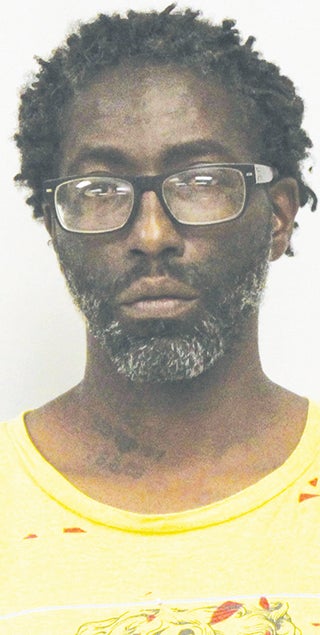Jury finds woman not guilty of DWI
Published 9:06 am Thursday, July 21, 2016
It took a Superior Court jury just over two hours to find a Mocksville woman not guilty of driving while impaired.
Lauri Anne McGinley, 49, of Main Street, was observed running off the road and nearly colliding with a semi-truck as she was driving east on I-40 March 1, 2013, at around 10:50 a.m., according to testimony by the person who witnessed it, N.C. Highway Patrol Trooper M. Ward.
Ward, who was in an unmarked black Chevrolet Tahoe that morning, said McGinley’s vehicle, a Lexus sedan, caught his attention because it ran off the road twice within three-quarters of a mile and there were four “jerky” motions. When the car nearly sideswiped an 18-wheeler, Ward maneuvered up beside it and saw McGinley with a phone in her hand. He activated his blue lights and pulled McGinley over.
On observation, she had “saggy eyelids, pinpoint pupils and she kept yawning.” He also noticed she wore knee braces and there was a walker in the backseat. She told him she was on her way to physical therapy for surgery she’d had on her knee about two weeks before, and she took Percocet for the pain but had taken it the night before, not that morning.
Ward had her perform some of the standard field sobriety tests, limited by her lack of mobility. Five of the six times she attempted to stand and with arms out and head back touch the tip of her nose, she missed. Ward said she also estimated 30 seconds as 17 seconds and had trouble counting backwards. Due to the bad driving, failed tests, and “slow, lethargic body movements,” Ward arrested her for DWI and failure to maintain lane control, and she was taken to the hospital for a blood draw, as he smelled no odor of alcohol and believed any impairment was coming from medication.
Brittany Cassell, with the state crime lab toxicology division, performed the test on McGinley’s blood and said it was positive for the opiates oxycodone and morphine, lidocaine, and cyclobenzaprine, a muscle relaxant. There was no mention of the drug Cymbalta, which McGinley told Ward she had taken that morning for depression. She testified later she also took a thyroid medication that morning.
Roxanne Yankee, a pharmacist with Walgreens, testified both oxycodone and morphine, which are Class 2 narcotic controlled substances, could cause dizziness and drowsiness and impair judgment. Lidocaine, a numbing agent, could cause dizziness, and the muscle relaxant could also cause dizziness and drowsiness. Together, she said, they would likely have an additive effect, especially with the combination of the muscle relaxant and the opioids.
Pinpoint pupils, she said, can come from the use of opioids, and generally, the more constricted the pupil, the higher the concentration of an opioid in the system.
“These medications are absolutely capable of impairing a person, mentally and physically, and they come with a warning to not drive or operate machinery until you know the effect the medication may have on you.”
McGinley’s attorney, Charles Mellies, asked Yankee if medications can affect different people differently and could being in the sun cause a person’s pupils to constrict.
She answered yes to both questions.
McGinley, who used a cane to walk to the stand, testified she has had about 10 surgeries on her back, knees and elbow to repair injuries sustained during a fall at work in 2002. She began taking pain medication in 2003 and has prescriptions from doctors, including surgeons and a doctor at a pain clinic.
She said she had taken oxycodone for about eight years prior to being arrested and knew how the medication would affect her, so she took it only at night when she was not going to be driving anywhere, she said. She had stopped taking the muscle relaxant because it bothered her stomach, had a Lidocaine patch on her back, and had not taken morphine but had it from an IV in the hospital after her surgery.
She couldn’t explain why the muscle relaxant or the morphine were in her system, but said her bad driving was because she’d received a phone call and had tried to make a phone call to her daughter.
On cross-examination by Steve Boone, assistant DA, McGinley was asked about a prescription for Avinza, a morphine sulfate, and McGinley said she remembers she had a prescription for it at one time but wasn’t sure when.
“Are you saying there was morphine left in your body from your surgery 10 days before?” Boone asked.
McGinley said yes.
Boone called Yankee back to the stand and asked her if morphine from an intravenous drip could stay in the body for 10 days and she said no.
McGinley testified she had taken a pain pill around 5 or 6 the night before and the only medication she had taken that morning was Cymbalta and the thyroid medicine.
In his closing argument, Mellies told the jury the question was whether the state had proved that McGinley was under the influence of an impairing substance. He said the state expert did not testify how much of any of the medications were in McGinley’s system nor how much it would take of any of them to impair a person. He said her pupils were constricted because Ward had her seated in the car facing the sunshine when he was observing her.
“Her cell phone impaired her driving, not the medication,” Mellies concluded.
Boone argued the presence of the impairing substances in her body and her bad driving were proof she was impaired.
“Does making one phone call and answering another explain going off the road twice, jerking four times and almost colliding with an 18-wheeler? That bad driving is evidence of impairment,” he said.
The jury, made up of four men and eight women, found McGinley responsible for the infraction of failure to maintain lane control and not guilty of DWI. She was ordered by Judge Ted Royster, Jr. to pay court costs for the infraction.
An unnamed juror later said there was no doubt in the jury’s minds she was responsible for failing to maintain lane control, but said the state was not able to convince them McGinley was impaired. He cited the absence of evidence as to amounts of the drugs in her system as crucial to their decision.



